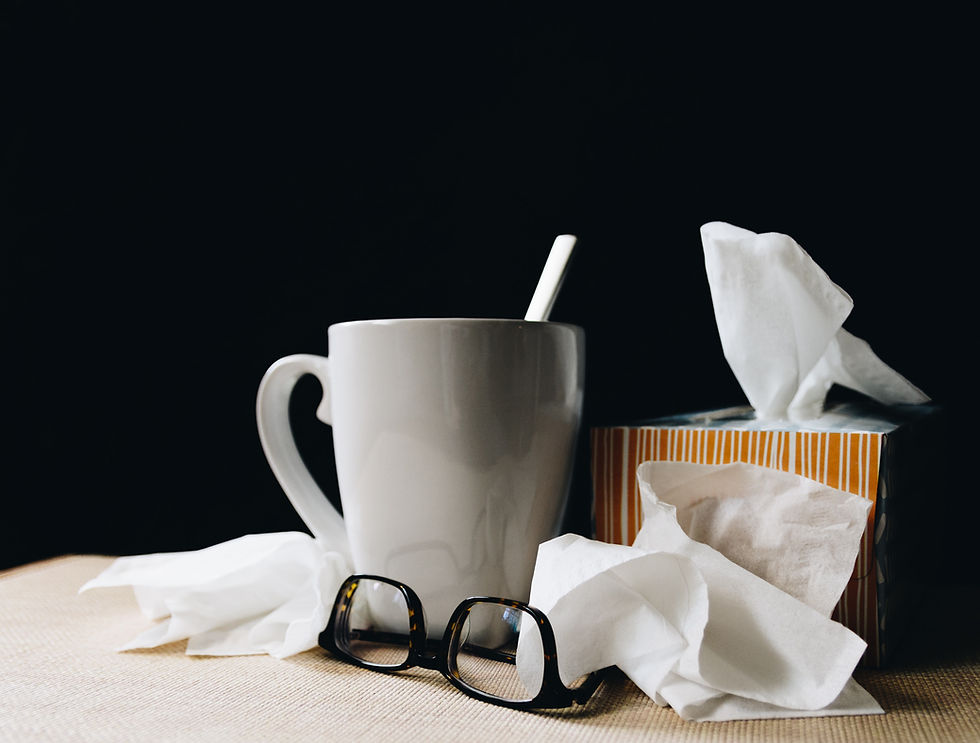We are still in the cold and flu season, which means congestion, tiredness, coughing, and sneezing can still ruin your week. In this blog, I wanted to share some natural winter sickness therapies that work.

Getting hit with the common cold is standard for most people. During the winter, we move our bodies less, get less sunlight, watch too much TV and sleep less. Many reasons exist that could make your body susceptible to viral invasion.
The common cold and flu share similar symptoms, but the flu tends to be harsher and lasts longer. If you think you have a cold but start to have an abrupt onset of symptoms, such as a fever, you should consider visiting your doctor.
Attempting to use natural treatments when you have a cold will support you, but it is best to keep healthy habits during winter to keep your immune system strong. Ideally, you want to avoid getting a cold in the first place.
1. Iodine
Most people are deficient in this vital mineral. It is essential for proper immune function and to fight off an infection. No virus, bacteria, parasite or fungus is known to be resistant to Iodine.
Not only does Iodine act as an anti-microbial, anti-bacterial, anti-viral, anti-fungal and anti-parasitic, but it also supports one of your most essential glands, the thyroid. This butterfly-shaped gland releases vital hormones for growth, metabolism and development. One of the most unsung roles of the thyroid is immune support.
Our Nascent Iodine is pre-converted into the bio-identical form that the thyroid will produce under healthy circumstances. This is only achieved by using a patented electromagnetic process that allows the Iodine to work far more efficiently and effectively within the body.

2. Vitamin C
When it comes to influenza, Vitamin C has long been studied for its powerful effects on reducing symptoms and sickness duration.
A 2013 study found that intravenous Vitamin C was an effective treatment for severe cases of influenza, unlike most pharmaceuticals. During the study, no adverse side effects were reported with the intravenous application, and improvements in severe symptoms improved significantly within 24 hours.
After intravenous treatment was complete, patients continued to use Vitamin C orally. Considering most acute influenza symptoms can last up to a week, the rapid recovery from intravenous Vitamin C shows how this natural therapy can be used for various viral infections.
Using Vitamin C supplements with added zinc can work well to reduce the duration of illness.
If you are not ill, I suggest taking 3-5,000 mg/day of vitamin C. At the first sign of an illness, I recommend taking 1,000 mg/hour until diarrhea develops, then back off.

3. Probiotics
Probiotics are marketed to support your gut microbiome and digestive health, but they are well-researched to help prevent you from catching a cold. A diverse population of gut bacteria goes a long way in fighting viruses.
The link between stress and sickness is pretty well established. You're more likely to succumb to a cold or flu when stressed with work, exams, etc. Studies show that bacterial strains such as Lactobacillus helveticus, Bifidobacterium longum and Bifidobacterium bifidum have been shown to produce healthier results compared to placebo.
70% of your immune system is in your gut,
so having healthy populations of the correct bugs is essential for immune defences.

Compliment these supplementation recommendations by focusing on these healthy habits:
Move your body every day
Get sunlight on your face and body each day
Eat as clean as possible
Get good quality sleep
Work on stress management
Stay hydrated
All the best,
Simon Brazier. Dip HN, NNCP
simon@truehope.com




Comments